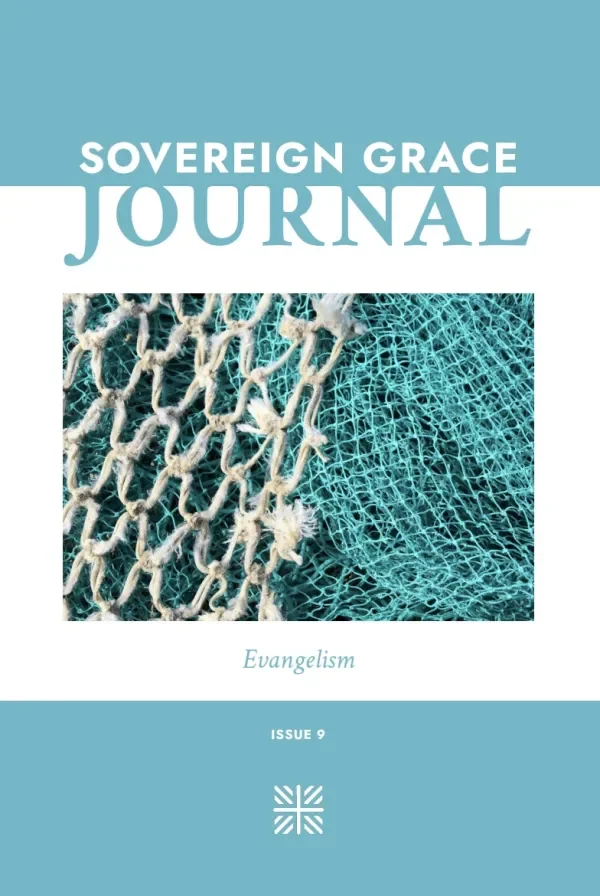Everyone, everywhere, in every way, is guilty before God, without excuse or escape. Below is an outline summary of the sermon for your further study and deeper reflection.
SERIES: Romans: The Power of God in the Gospel of Christ
TEXT: Romans 3:9-20
TITLE: An Open and Shut Case
PREACHER: Derek Overstreet
POINTS:
I. The Charge
II. The Evidence
III. The Verdict
SERMON EXCERPTS:
All quotes and text emphasis are taken directly from the pastor’s notes.
ILLUSTRATION: “Zuckerberg’s excuses crumble as Meta’s sinister Instagram model is exposed in trial. …The evidence in this social media trial speaks for itself.”
”TRANSLATION: The social media king was silenced by the overwhelming evidence against him. No excuses, no explanations, no buts. The evidence says it all. How airtight the prosecutor's case will be is yet to be seen.”
“But in today’s text, Paul puts forth an airtight, open and shut case. In fact, 19 creates a picture of a courtroom scene.”
“Whether it is the law of God that has been written upon the heart and attested to by the conscience of the Gentile (2:15) or the law of God given to the Jews through the OT Scriptures, the evidence against Gentiles and Jews as lawbreakers is so overwhelming that every mouth is shut. No excuses. No explanations. No appeals of injustice. No ‘Yeah, buts.’ Everyone, everywhere, in every way, is guilty before God, without excuse or escape.”
“Paul’s conclusion of 1-8 comes in the form of questions—(9a) What then? Are we Jews (God’s chosen people who possess the law and God’s promises), are we any better off? (in our hearts before God than the Gentiles). Paul’s answer reveals the charge—(9b) No, not at all. For we have already charged that all, both Jews and Greeks, are under sin.”
“This is not new. Paul has been establishing universal guilt ever since 1:18. As it pertains to the Jews, there may be certain advantages as God’s chosen people, but at the end of the day, everyone stands guilty before a holy God.”
“What is new is how Paul talks about sin. He says at the end of 9—all are under sin. Paul presents sin as more than a behavior; it’s a slave-master. We are under sin. Sin has hold of us. We sin because by nature we are sinners.”
“Why do people suppress truth (1:18)? They are under sin. Why do people commit evil and approve of others who join them (1:32)? They are under sin. Why do people self-righteously and hypocritically look down on others in judgment when they do the same thing themselves (2:1)? They are under sin. A doctrine of sin is forming here that will help us as we move through Romans. More than bad behavior, sin is a dynamic power that rules over us apart from Christ.”
“So the charge here is that we are all under the power of sin. Next, Paul will lay out the evidence of our slavery by using a string of OT passages.”
“Evidence #1: Hearts that have turned away from God. In 10-12, Paul cites Psalm 14 and 53. As you read, pay attention to the universal language. There are thirty words in these verses. Thirteen of them are a mix of no one, none, and all. Paul leaves no room for—Yeah, but not me. He shuts our mouths before God.”
“Paul says—No ‘yeah, but.’ By nature and apart from the saving grace of God, the Gentile and the Jew, you and me, and everyone else out there, we are all under sin and unable to stand before God because we are wholly unrighteous and spiritually worthless in every way.”
“Evidence #2 Tongues that deny truth. Paul moves from the heart to the tongue. Out of the heart the mouth speaks, Jesus said in Matthew 12:34. By nature, our mouths are like open graves. Deception, curses, and bitterness pour from our hearts through our speech. Paul likens our words to the venom of asps, one of the deadliest snakes on the planet. We twist and spin truth to look good. We put others down to puff ourselves up. We selfishly flatter others to stroke our own egos. We pollute others with our gossip. Our careless and coarse speech leads others astray. It’s all poison that reveals a self-seeking heart.”
“Evidence #3 Behavior that causes destruction. In the Bible, words like feet, path, and walk refer to behavior or the way one lives. Paul is pretty clear here: Apart from Christ, the sinful heart leads to a destructive tongue and life. Murder, misery, and conflict characterize a world that is under the power of sin. With our actions, we create division and despair. Instead of being excited and happy for someone else, we are angry and envious because they have what we think we deserve.”
“In 17, Paul says the way of peace is unknown to them. That peace is the peace of God that comes by faith in Jesus Christ. We were created to live in harmony and peace with God as His people. But when we reject that vertical relationship, all peace is gone, including peace with one another. Harmony and unity are no match for a self-seeking heart.”
“Jonathan Edwards once said—The slightest sin has an infinite amount of hatefulness in it, enough to outweigh whatever loveliness the creature possessed. Here’s the bottom line: In our sin, we resist and reject God, and we ruin our relationships with one another.”
“The root of all this - wayward hearts, bitter tongues, and destructive behavior - is not sociological, emotional, economic, or some humanistic theory of oppression. It’s theological.”
“Paul sums it up here—We just don’t care about God. His power, authority, and rule just aren’t important. I have my own agenda. I know how I want to live my life. My desires and needs are most important to me. God may be good, but I am great!”
“Taken together, these verses reveal our spiritual inability. Sin is so pervasive that it has corrupted us in every way, leaving us in a state of total depravity. Not that we are as sinful as we could be, but we are sinful in every way; sin has affected every nook and cranny of our being, leaving us with zero ability to respond and relate to God as we ought. Apart from God acting on us through the regenerating work of the Holy Spirt, no one comes—because no one can come to God in repentance and faith. As Paul say in Ephesians 2:1—We are spiritually dead.”
ILLUSTRATION: Dead in water vs treading water
“As 19 says—Our mouths are shut as we stand accountable before God in the divine courtroom. That’s the human race as we listen to the heavenly charges against us. We sit, staring up at the holy Judge with absolutely no defense. No protesting. No accusations of unfairness. No playing the victim card. No, I did my best. No, If you only knew. No extenuating circumstances. No threat of mistrial. In the face of overwhelming evidence, mouths are stopped shut before God.”
“If you want to cultivate greater humility before God. If you desire to have deeper gratitude for the gospel. If you need a fiercer hatred for your indwelling sin. If you long for a stronger love for one another. If you want to stoke the flames of amazement at saving grace—Remember where you came from and who has brought you to where you are today. Though you stood justly condemned, Christ took your place…”
QUOTES:
John Stott- “Paul appears almost to personify sin as a cruel tyrant who holds the human race imprisoned in guilt and under judgment. Sin is on top of us, weighs us down, and is a crushing burden.”
Thomas Schreiner - “The purpose in life is to fear and reverence God so that he is esteemed as holy and majestic and mighty. Sin at its heart decenters God; it degods God; it rejects his rule over our lives.”
Christopher Ash - “Paul wants to expose the terrible anatomy of sin, so that we do not just admit in a shallow way but feelit deeply. He wants each of us—including (indeed especially) the religious person—to be speechless with guilt and shame before God. He wants us to feel in anticipation that final judgment scene, that without Christ we will have nothing to say in our defense.”
APPLICATION:
Everyone, everywhere, in every way, is guilty before God, without excuse or escape. APPLICATION: Never forget where you came from! Paul could have gone from 9 straight to 19. He didn’t. And he didn’t because he wants us to remember where we came from. Here are is one powerful way you can Remember: This week, MAKE TIME to share your testimony with a fellow believer and ask someone to share their testimony with you, even if you’ve already heard it.
SCRIPTURE MEMORIZATION:
Romans 3:20-26
SONGS FROM THIS SUNDAY:
Sing
All I Have Is Christ
Shine Into Our Night
You Made Us Your Own
Thy Mercy
NEXT WEEK’S PASSAGE:
Romans 3:9-20
THE BOOK OF THE QUARTER:















